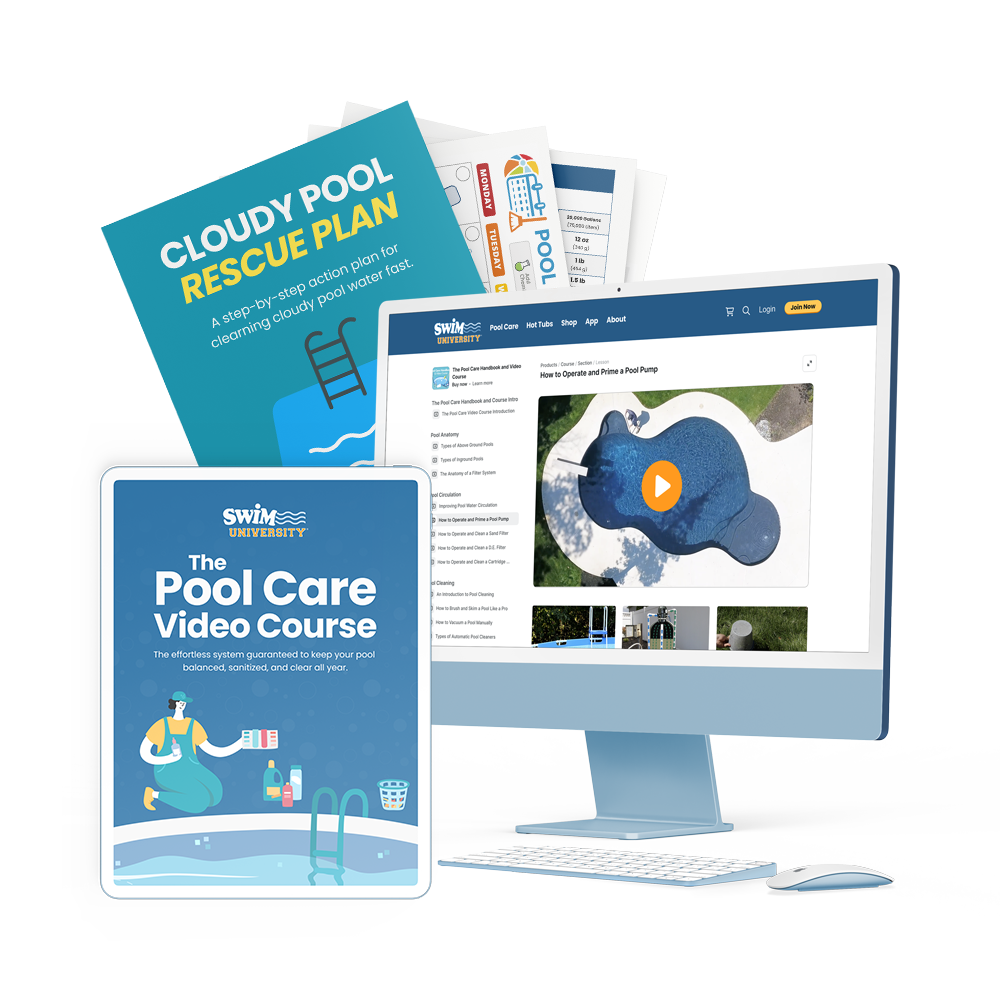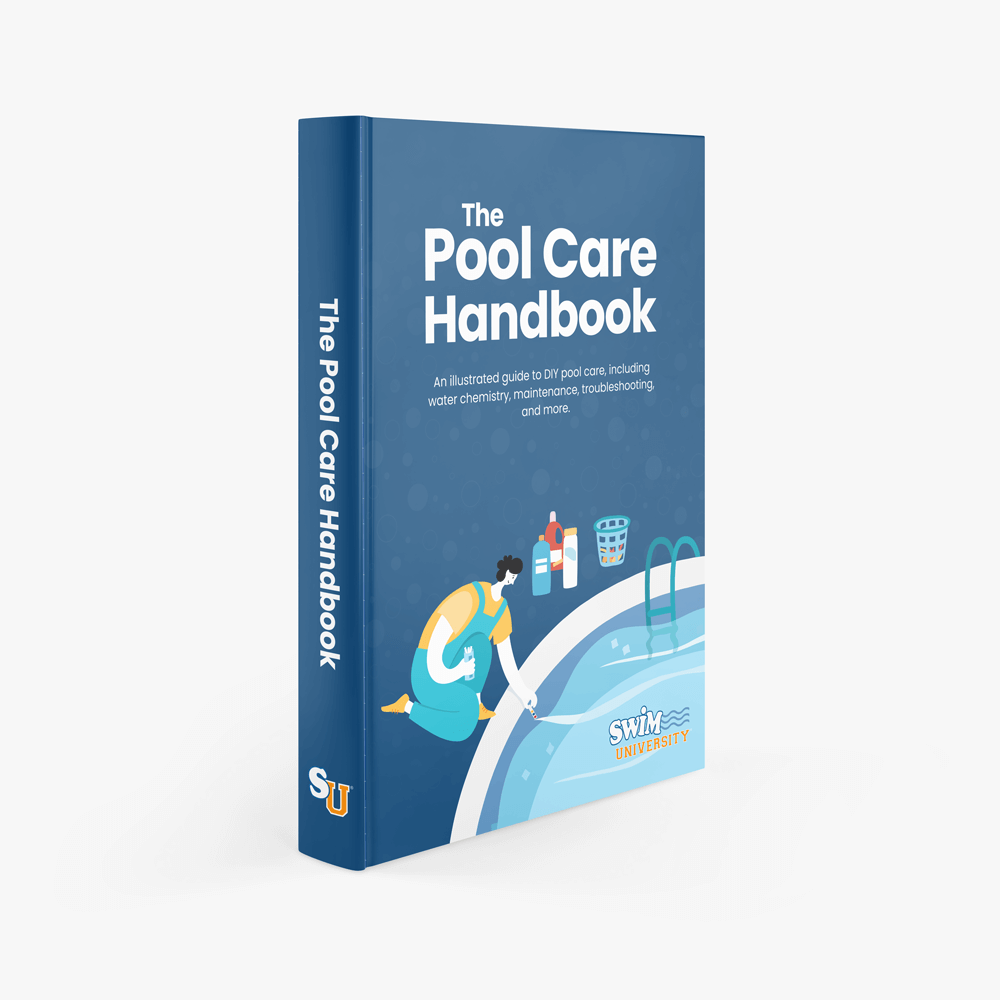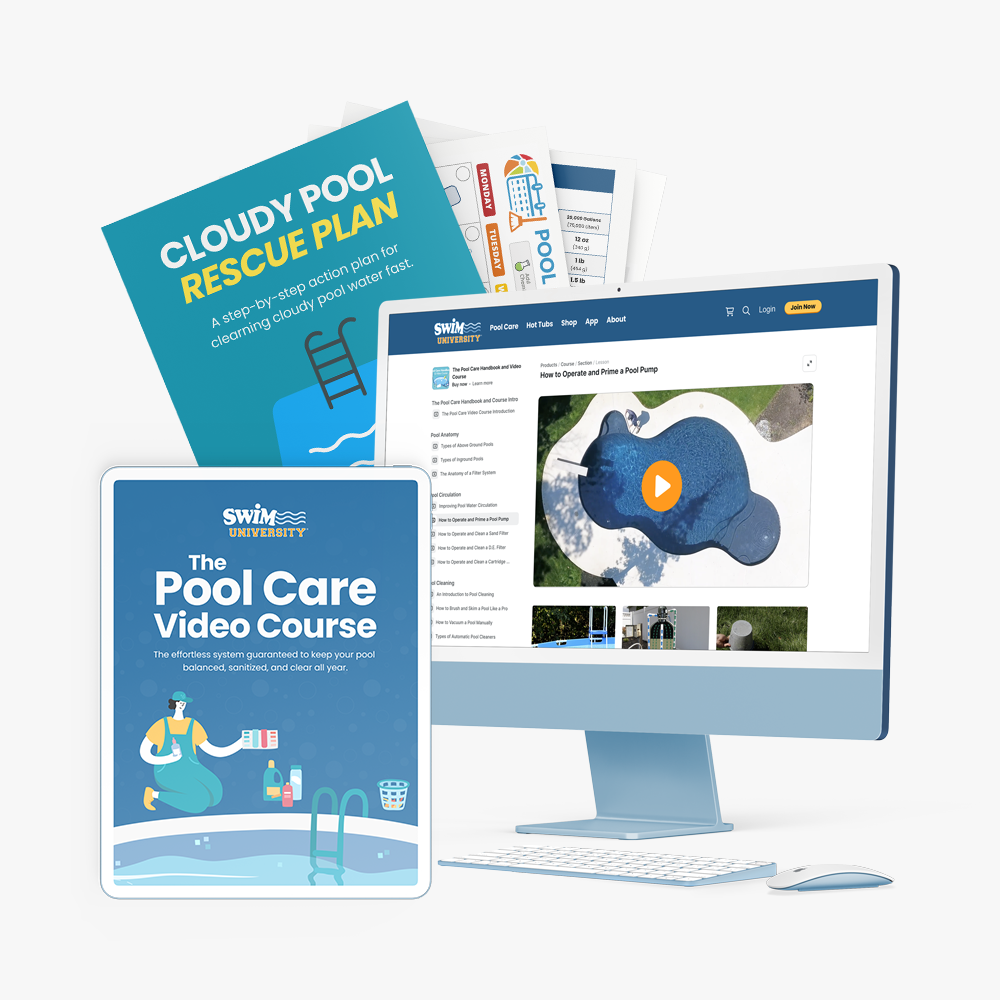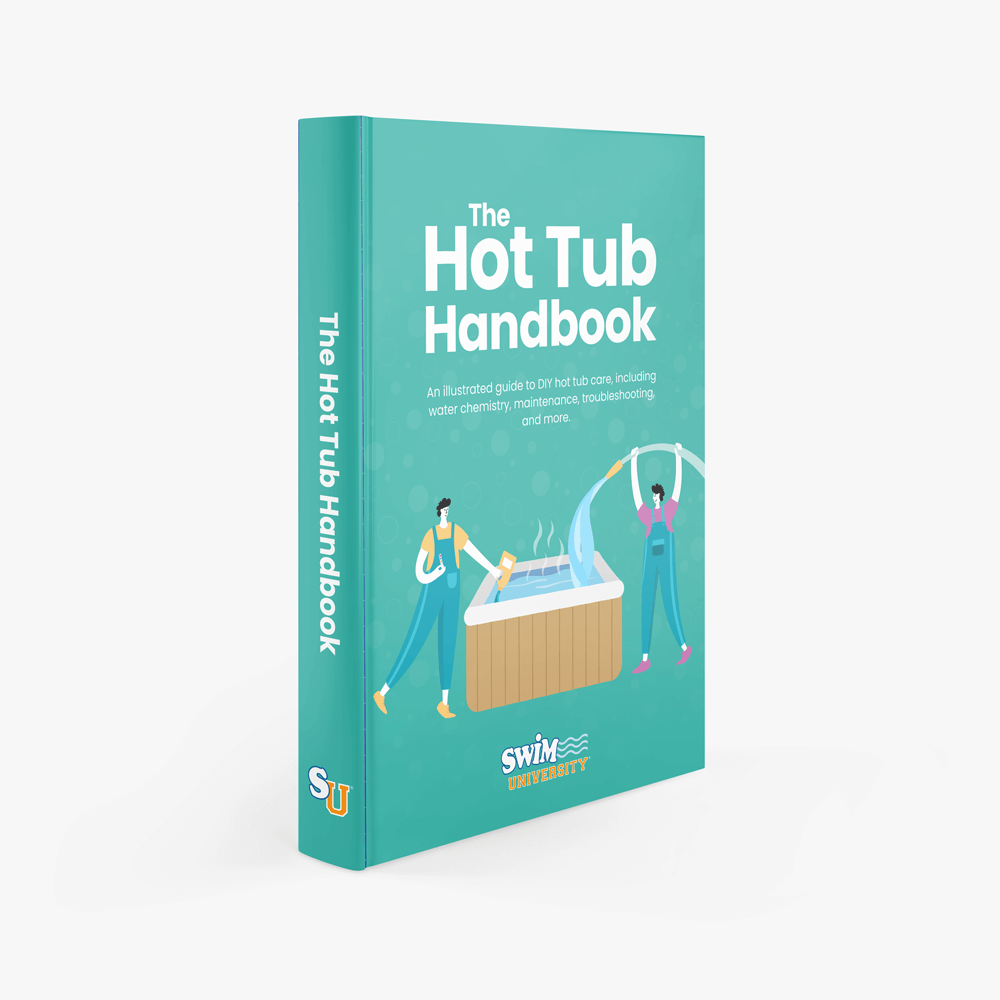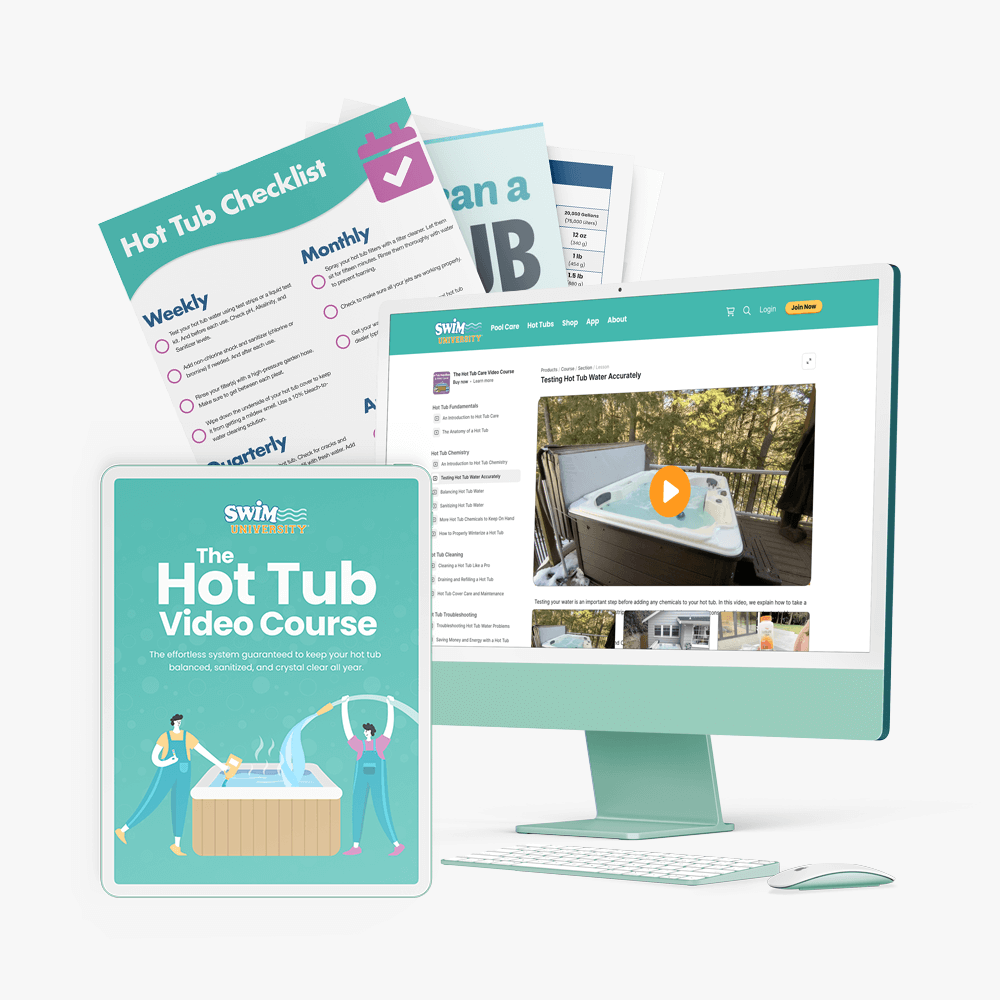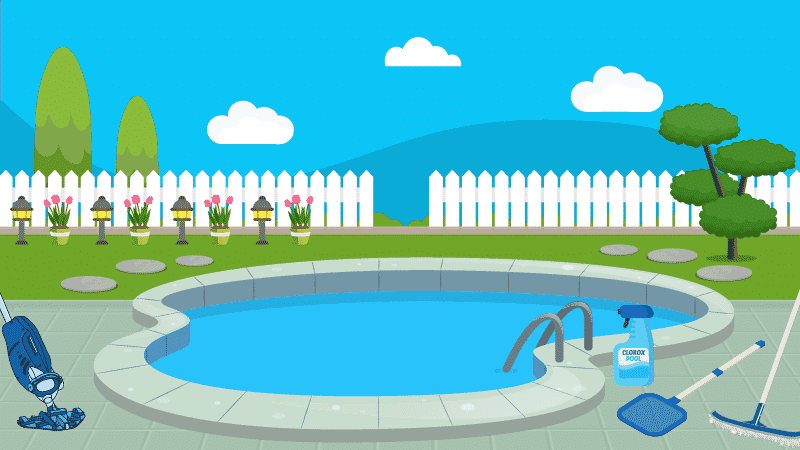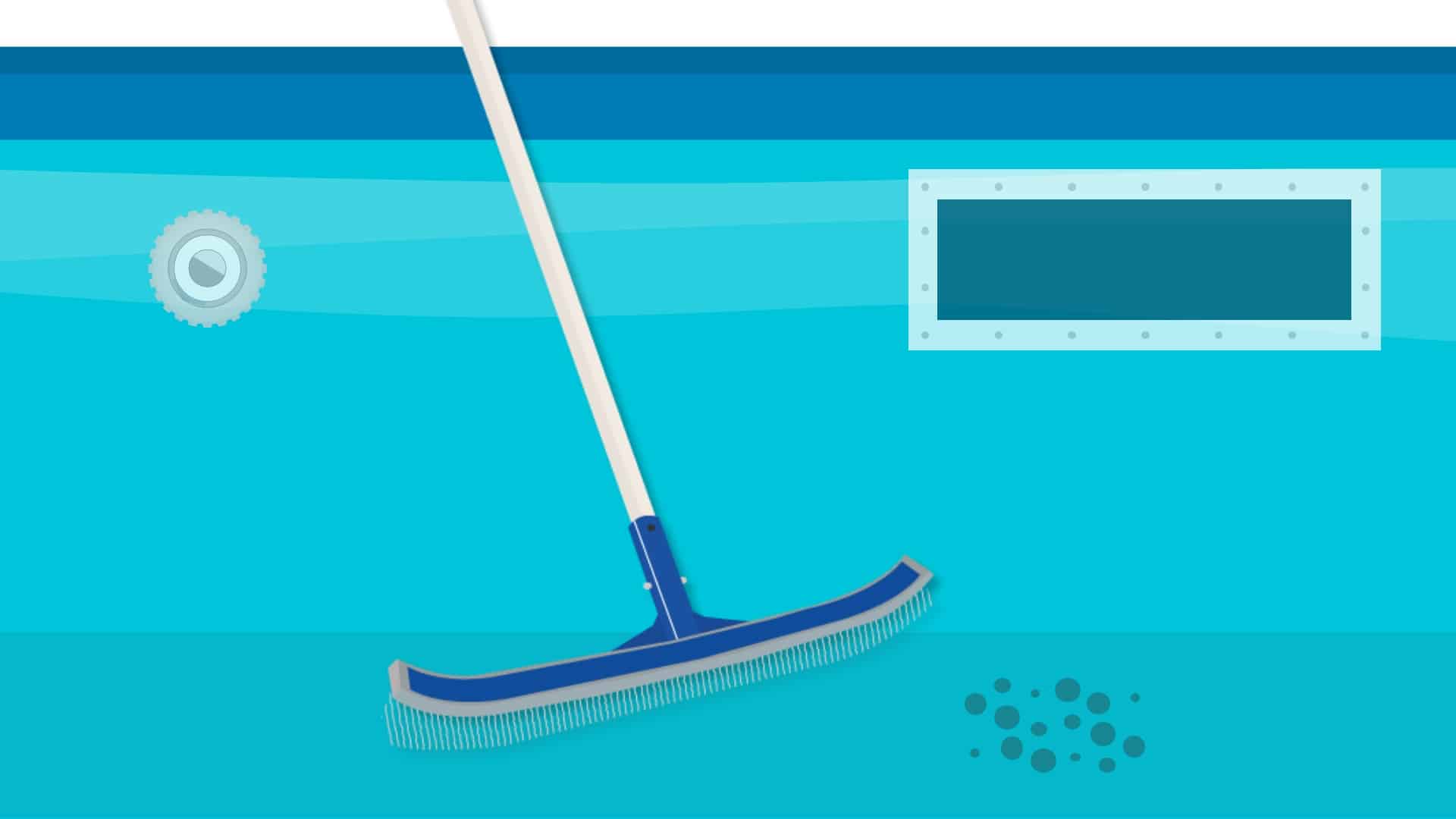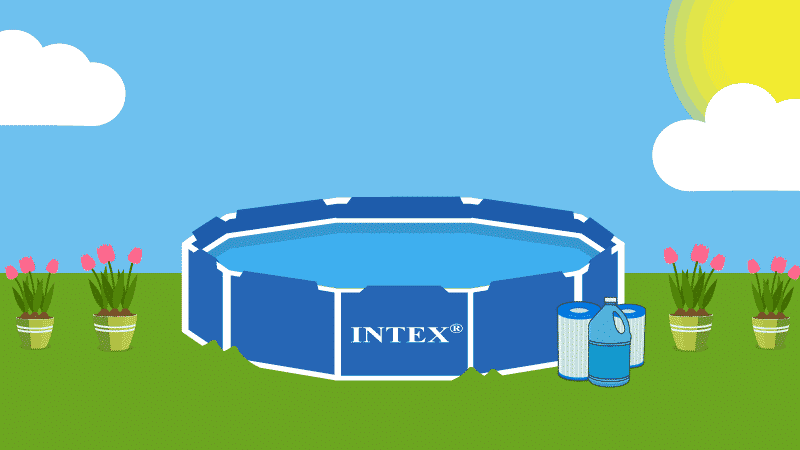11 Household Products to Clean Your Pool
Have you ever wondered whether you have to use chemicals to clean your pool? While some are irreplaceable, some products you find at your local grocery store can do just as good a job as the products marketed specifically for pool cleaning, and can save you quite a bit of money.
Or maybe it’s not about money for you. If you’re just looking for a natural pool cleaner to maintain a healthy and safe environment for your family, look around your house for some regular household products to clean your pool.
Stop wasting time and money with confusing water chemistry and maintenance. Our effortless system guarantees to keep your pool balanced, sanitized, and crystal clear all year. Works for all pools including saltwater.
Create Your Own Natural Pool Cleaner
You really can clean your pool for a fraction of the cost of what you’d buy at a pool store.
1. Baking Soda
Making a simple paste from water and baking soda creates a non-abrasive cleaner that works wonders on pool tile and grout. You can even use it on your concrete or stone pool deck. This is probably the easiest and least expensive way to clean your pool naturally.
Bonus Tip: Baking soda will also increase your pool’s alkalinity, and is far less expensive than most alkalinity increasers. To do this, add 1.5 pounds of baking soda for every 10,000 gallons of water to increase the total alkalinity by 10 parts per million (ppm). Learn more about how baking soda can increase your pool’s alkalinity and pH.
An affordable alternative to traditional chemicals, baking soda will naturally raise the alkalinity and pH in your water. It's also useful for cleaning tiles and surfaces.
2. Bleach
Also known as sodium hypochlorite, simple household bleach (which contains 5.25 percent of sodium hypochlorite, the active ingredient in bleach) can get stains out of grout that the baking soda couldn’t.
Bonus Tip: Bleach can also be used to shock a pool. After all, shocking your pool is just superchlorinating it, which means raising the chlorine level to the point where it kills all the bacteria and algae that may be lurking in the water.
One gallon of 5.25% bleach per 10,000 gallons of water will raise the free chlorine level by 5.25 ppm, so go slowly to make sure you don’t surpass the ideal 3 ppm level. And make sure you use the unscented variety.
Bleach with 7.5% sodium hypochlorite offers powerful sanitizing capabilities.
3. Muriatic Acid
Every five years or so, you’ll need to acid wash your pool if it’s made from concrete or gunite. To do that, you’ll use muriatic acid, or a gentler muriatic acid alternative, if you prefer.
Bonus Tip: Muriatic acid can also be used to lower the alkalinity of your water by as much as 10 ppm in a typical 10,000 gallon pool. It’s usually less expensive than alkalinity decreaser.
Important: Keep mind that muriatic acid is exactly what its name says—acid. It can cause injury if not handled correctly. Always wear acid-resistant gloves and eye protection when using it, and wear long pants, long sleeves, and closed-toe shoes, preferably acid-resistant boots.
Used for lowering alkalinity and pH in your pool water. It's also used for cleaning pool filter grids, filter cartridges, and concrete pool surfaces.
4. Borax
You may have a box of Borax sitting next to your laundry supplies. It’s touted as a laundry booster, and it’s great for getting nasty smells out of clothes. But it’s also a natural cleaner you can use around the house, which means you can also use it as a natural pool cleaner.
Simply make a paste out of it by adding water, and use it to scrub away sticky residue, slippery spots, and stains in or out of the pool. It’s not quite as inexpensive as baking soda, but still less expensive than most special pool cleaning products.
Bonus Tip: Borax can also be used to raise the pH in your pool. To do this, add half a cup per 10,000 gallons of water.
How much you need to use will depend on how much you need to raise the pH level. Go slowly with it to avoid raising the pH too much.
5. Olive Oil
OK, to be clear, you don’t want any oil in your pool water. But the pool deck is another story. Maybe you find a spot of tree sap, or a sticky spot of who knows what the kids might’ve spilled there. Head to the pantry and grab the olive oil.
It’s a completely natural pool cleaner you can apply to break down the sticky buildup, and then easily clean with a sponge, a mild soap, and warm water. You can also use it on your pool cover, plastic pool toys, and just about anything that isn’t under the waterline.
Bonus Tip: Olive oil is also a natural moisturizer. If your skin is dry after swimming, shower all the chemicals off. Then smooth some olive oil onto your arms and legs to restore your skin’s moisture and to seal in water, which further hydrates your skin.
6. White Vinegar
Have you ever looked out at your beautiful, clear pool, and been annoyed by the chalky, white grunge right at the waterline? It’s calcium buildup, and while it doesn’t damage your pool or the water, it doesn’t look great, either.
Just like you run vinegar through your coffee pot to get rid of calcium buildup, white vinegar can wipe away this eyesore in your pool. Mix a 50/50 solution of vinegar and water, dip a sponge or soft cloth into it, and scrub that residue away. It’s OK if a little bit of it makes it into the pool water, but if you’re concerned, test the water after using vinegar, and adjust any levels if necessary.
All-natural and diluted to a cleaning strength of 30% acidity.
Bonus Tip: Vinegar also shines up metal surfaces like a champ. The pool ladder handles, for example. Just dip a sponge into the diluted vinegar, run it over the metal surface, and watch it sparkle.
7. Lemon Juice
Speaking of shining up metal surfaces, you know what works just as well as vinegar and smells much nicer? Lemon juice, or lime, if you prefer. Citric acid is a natural pool cleaner—well, a natural anything cleaner, really. It can remove calcium buildup, grime, and in some cases, even rust.
Mix about a cup of lemon juice with enough salt to make a slurry. Think watery snowcone consistency. Apply the mixture to metal or tile with a sponge, and gently scrub the rust or gunk away. If the calcium buildup or rust is bad, try using undiluted lemon juice.
Bonus Tip: Plant a lemon tree near your pool and get six benefits: shade; added privacy; windbreak; lemons you can use to keep your pool clean; lemons to make fresh-squeezed lemonade; never having to buy lemon juice again.
8. Rubbing Alcohol
Out of vinegar and lemon juice? Check the medicine cabinet and see if you have any rubbing alcohol. Also called isopropyl alcohol, it’s good for removing sticky gunk and shining stainless steel surfaces. Be sure to dilute it with water first, making a mixture that’s 50% to 70% alcohol.
Bonus Tip: It’s a good idea to keep rubbing alcohol on hand to clean small wounds, but it’s especially important if you have a pool. If one of the kids is running around, falls, and scrapes their knee, you want to kill any bacteria on the wound not only to prevent infection and help it heal, but to keep the bacteria out of the pool water.
9. Simple Green
OK, this one’s already a cleaner. But it’s also non-toxic and environmentally friendly, so you can rest easy using it as a natural pool cleaner. It works to remove stains and grimy residue, and can even remove small amounts of rust with a little elbow grease.
Simple Green is highly concentrated so be sure to dilute it first. The manufacturer recommends the following dilution ratios:
- Light Cleaning – 1:30
- Example: 1 ounce Simple Green; 2 Cups water
- General Purpose Cleaning – 1:10
- Example: 1 ounce Simple Green; 1 Cup water
- Heavy-Duty Cleaning – 1:1
- Example: 1 Cup Simple Green; 1 Cup water
Bonus Tip: Because Simple Green isn’t caustic, you can also use it on more vulnerable surfaces such as pool covers, plastic pool toys, and vinyl liners.
Revolutionary, all-purpose cleaner. Strong enough to degrease your cars engine, yet gentle enough to remove stains from fine fabrics.
10. Melamine Sponge
You may be more familiar with one brand’s name for this item: Magic Eraser. Simple melamine has tremendous cleaning power, and all you have to do is dampen it. No chemicals or cleaners needed. It will remove stains and sticky residue from most surfaces. Be aware, though, that it can scratch, so test it in a small, inconspicuous spot before scrubbing an entire area.
Melamine sponges are also disposable, but you can get quite a bit of use out of one sponge before you need to retire it, making it a cost-effective and essential natural pool cleaner to have in your arsenal.
Bonus Tip: Do you have vinyl pool chairs or vinyl patio furniture? They can start to look dingy after a while, especially if they’re white. A melamine sponge can make them look like new again.
11. Vitamin C Tablets
Hear us out. It may sound a little wacky, but crushed vitamin C tablets are excellent stain removers. Why? Well, vitamin C is ascorbic acid. While it’s not a caustic acid, which is why we can ingest it, it’s still an acid and can remove some stains and even rust.
Crush the tablets, and scrub away stains and gunky residue on pool surfaces. Just be sure to use the tablets, and not and capsules or gel tablets. And we highly doubt vitamin C gummies will work for anything but boosting your health.
Bonus Tip: We did our best to find another cool use for vitamin C tablets, but really, the only other thing they’re good for is to take as a supplement if you’re not eating enough fruits and vegetables that contain the vitamin naturally.
Remember to Test
Before you begin, be sure you invest in a reliable test kit to properly test the water and make sure it stays balanced.
While using household products to clean your pool can save you money, never skimp on the test kit so you are sure you get an accurate read of what exactly is present in your water.
This digital pool and hot tub water test kit checks for Free Chlorine, Total Chlorine, Bromine, PH, Alkalinity, Calcium Hardness, and Cyanuric Acid.
A Word of Warning
While many household products will work perfectly for your pool, always remember to check the labels to see what is actually in what you’re buying before you put it in your pool. If you don’t, you could end up damaging your pool’s lining or even the plumbing, or you could end up with poor water quality.
Also remember these products will work best in a traditional, chlorine-based system. In some cases, these products may not perform as well as the ones designed specifically for a pool.
Time to Clean Up!
Some pool supplies are simply irreplaceable. But if you’re on a budget, household products can be effective, inexpensive alternatives, and can allow you to create a natural pool cleaner, if that’s your goal.
Remember to check the labels and take proper precautions while using them to remain safe while working on your pool, and to keep everyone who swims in it safe as well.
Happy (Clean) Swimming!
3 Ways We Can Help With Your Pool
- Pool Care Cheat Sheets (Free): Easy-to-use downloadable guides to help you keep track of taking care of your pool this year.
- The Pool Care Handbook: An illustrated guide to DIY pool care, including water chemistry, maintenance, troubleshooting, and more.
- The Pool Care Video Course: You’ll get 30+ step-by-step videos and a downloadable guide with everything you need to know about pool maintenance.

